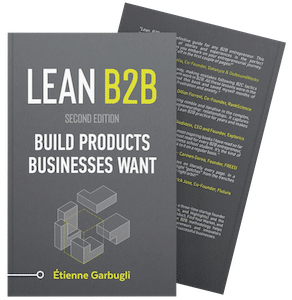When looking for your first few customers, one of the things that your pitch should help reinforce is the credibility of your startup. It should be perceived as reliable and dependable.
Although some entrepreneurs sell pilots without committing to a strict deadline, demonstrating reliability is a good way to reduce your prospects’ perception of risk and increase your credibility.
If the prospect is sold on the value of your offering, they’ll be pressing you to start using your technology — a good indicator of interest. Committing to a (realistic) deadline helps set the relationship on the right track.
Delivering quality results on time and on budget is one of the best ways to build trust with companies.
Once you close a prospect, having to commit to a deadline or specific milestones shouldn’t come as a surprise. Come prepared with an estimated delay for full or partial delivery and work from there.
Most well managed businesses don’t hand out checks without a promise of delivery.
xD3 Solutions – Setting a deadline
xD3 Solutions (now part of Telus Health) founder Simon Labbé had been successful closing deals with 50 drug stores by signing two chains before their product was ready. To convince the chains to sign deals and demonstrate the seriousness of his small company, they agreed on an aggressive delivery date for the solution.
The startup had three months to deliver a working product. In exchange, the chains agreed to give a 25% deposit on signature.
It was an intense development phase for the startup, but the successful delivery helped establish solid relationships with their first customers and set the company in motion.
In retrospect, Labbé says that the chains wouldn’t have signed with them without a tight delivery date.
Meeting deadlines helps establish the credibility of your startup. If your company has competition (competition is good!), it can be a great way to differentiate your offering from other companies’.
Download the First 4 Chapters Free
Learn the major differences between B2B and B2C customer development, how to think about business ideas, and how to assess a venture’s risk in this 70-page sampler.
Working on a B2B Startup?
Learn B2B customer development with our free email course:


